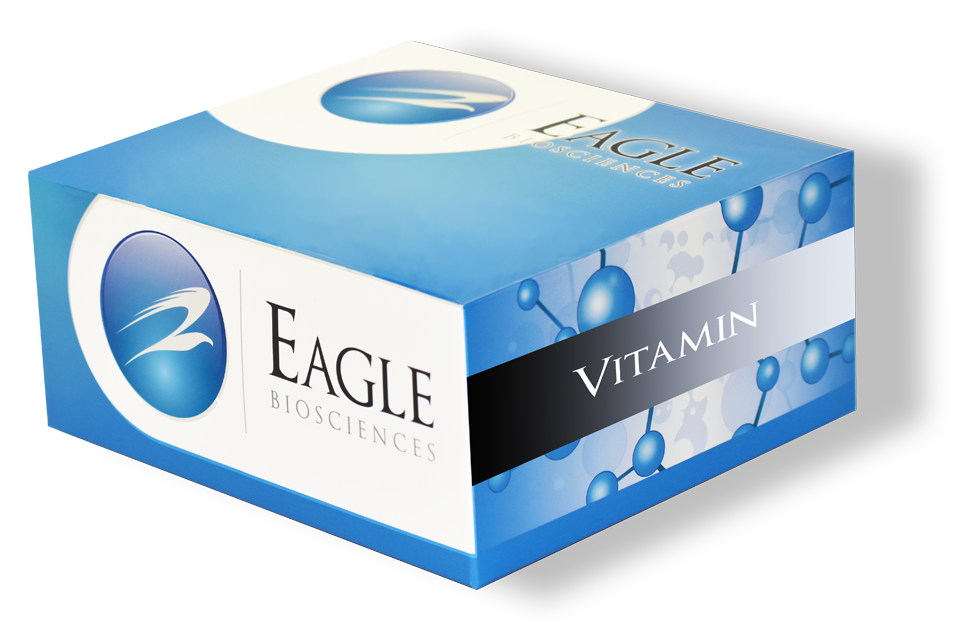Biotin Microtiter Plate Assay
Biotin Microtiter Plate Assay manufactured in Germany by Immundiagnostik
Size: 1×96 wells
Sensitivity: 0.02 µg/L
Dynamic Range: 0.02 – 0.18 µg/L
Incubation Time: 48 hours
Sample Type: Serum
Sample Size: 50 µL
For Research Use Only
Controls Included
Indications for a determination of biotin
- Defects in enzymes (e.g. genetic deficiency of biotinidase)
- Short gut syndrome
- Malnutrition
Preparation and Storage of Reagents
- Store test kit / reagents at 2-8°C.
- Prepare reagents freshly and use immediately after preparation. Discard remaining unused reagents and waste in accordance with country, federal, state, and local regulations.
- Put unused reagents (standard, controls, medium) in the test kit and store at 2-8°C.
- Take as many microtiter strips as needed from kit. Store unused strips in the original package bag at 2-8° C to prevent contamination or moisture exposure.
- No warranty can be given after the expiry date (see label of test package).
- To run assay more than once, ensure that reagents are stored at conditions stated on the label. Prepare only the appropriate amount necessary for each assay.The kit can be used up to 3 times within the expiry date stated on the label.
Assay Principle
Serum samples are diluted and added into the microtiter plate wells coated with Lactobacillus plantarum which metabolizes biotin. The presence of biotin both in standards [STD] and samples gives a biotin-dependent growth response. After incubation at 37°C for 48 h, the growth of Lactobacillus plantarum is measured turbidimetrically at 610 – 630 nm (alternative at 540 – 550 nm) in an ELISA-reader. A dose-response curve of absorbance unit (optical density, OD at 610 nm) vs. concentration is generated using the values obtained from a standard. Biotin present in the patient samples is determined directly from this curve.
Related Products
Pantothenic Acid Microtiter Plate Assay
Niacin Microtiter Plate Kit
Folic Acid Microtiter Plate Assay Kit


